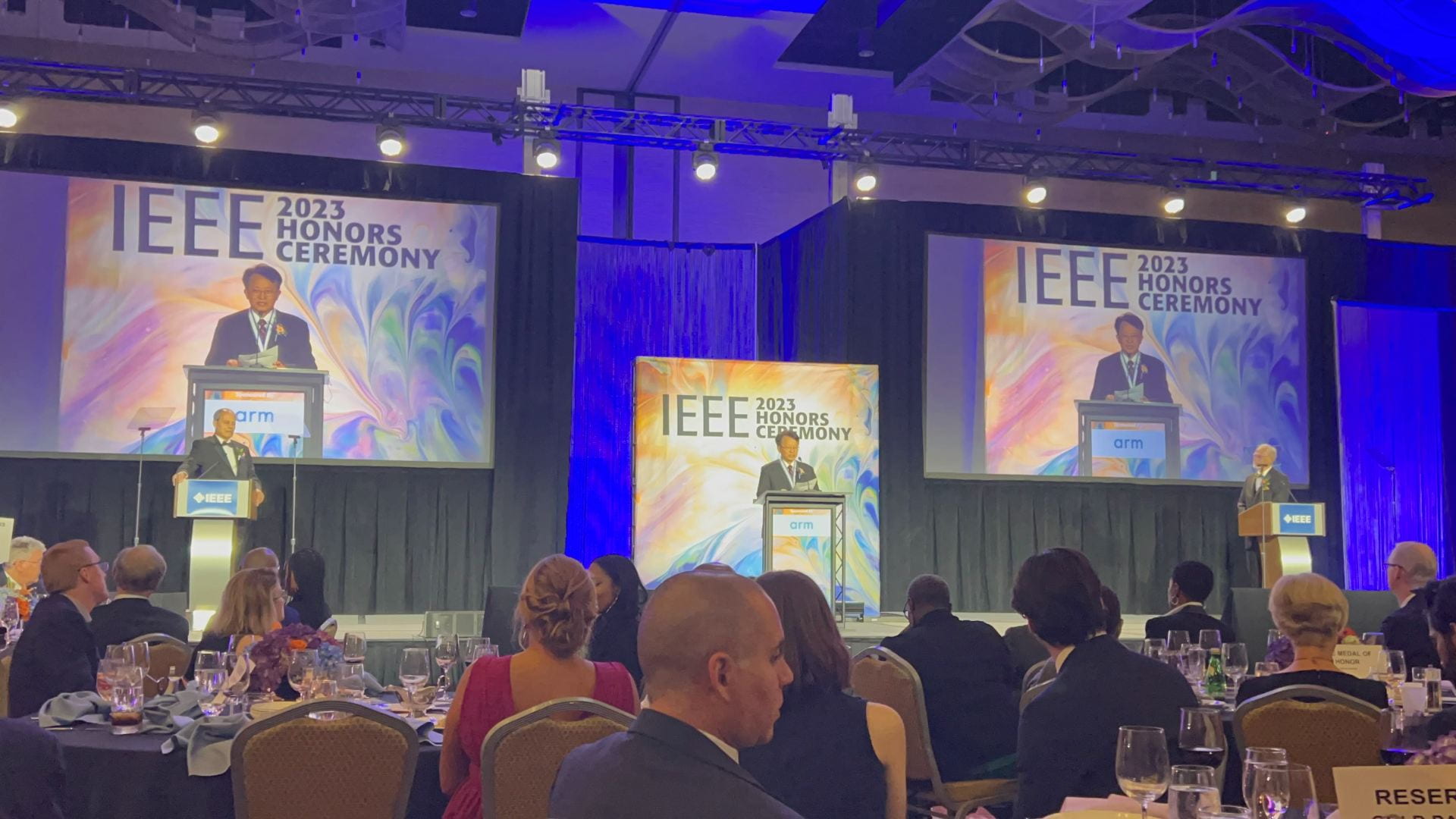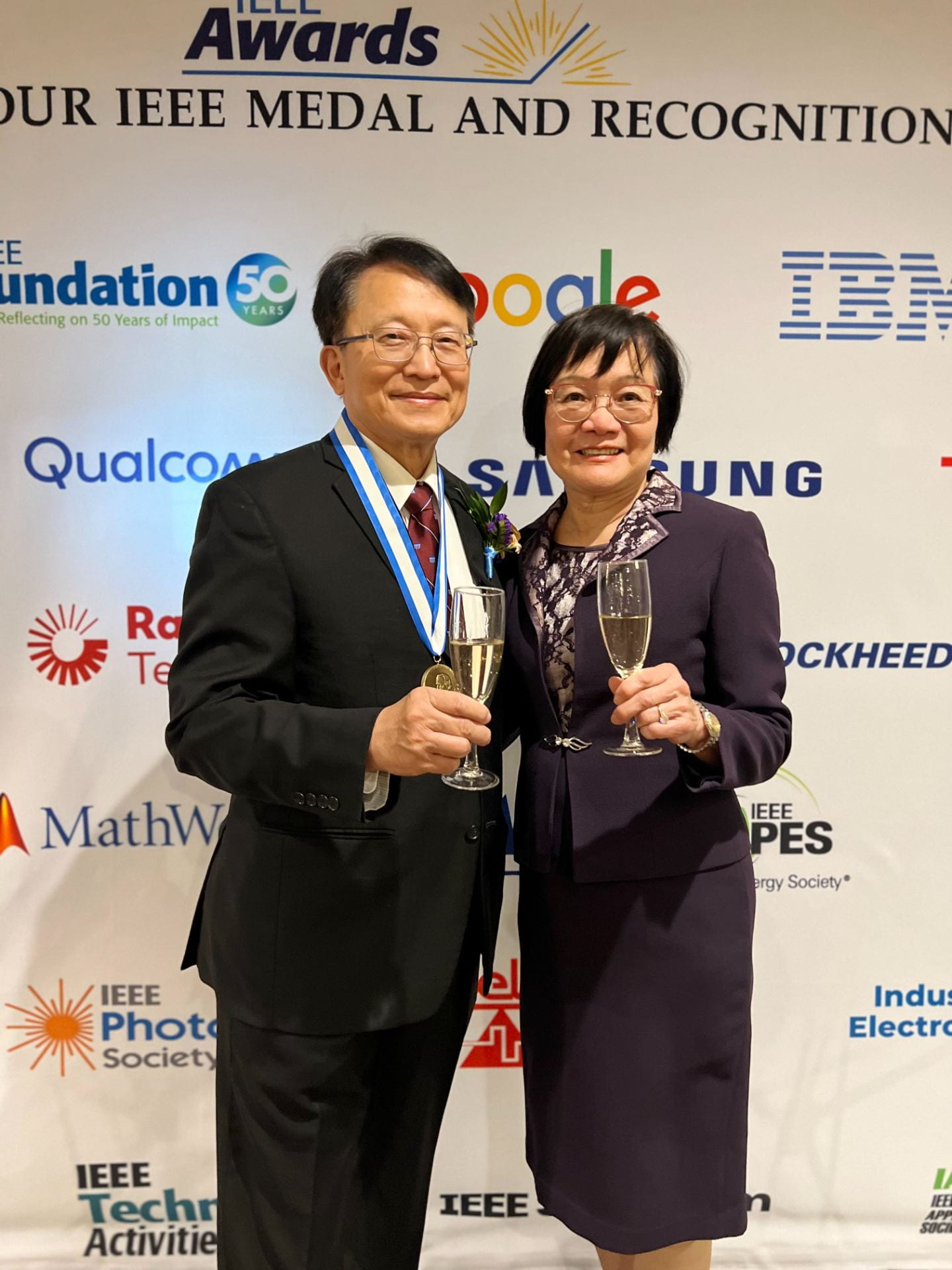Excerpt from the IEEE Award Ceremony:
Frank Chang pioneered the field of modern high-speed electronics. It was he and his UCLA students who first realized (sub)-mm-Wave
systems-on-chip for SWaP (size, weight, and power)-efficient radio, radar, interconnect, imager, and spectrometers for both commercial and
spaceborne systems with transformative mechanisms and methodologies—this exceptional achievement has ushered in the age of modern high-speed electronics across digital and analog domains. His work is seminal not only from an academic point of view but has also had a profound impact on our global economy and society. In the early 1990s, Chang and his research partners at Rockwell Science Center developed the world’s first high-volume manufacturing process for MOCVD based GaAs heterojunction bipolar transistors (HBTs). This was a major advance that opened the way for the mass-market introduction of cellphones with adequate battery life in a small form factor. Chang even extended this process to cost-effectively integrate HBTs
and field-effect transistors (FETs) by sharing a common epi-layer structure (i.e. GaAs BiFETs), which reduced power amplifier’s supply voltage by one-third, largely cut cellphones’ power consumption and extended its talk time. Most cellphones in the world today incorporate descendants of the original GaAs technology developed by Chang’s Rockwell team. Upon joining UCLA in 1997, Chang expanded his research to (sub)-mm-Wave (Terahertz) circuit and systems, with focuses on system’s re-configurability and broad/multi-band signaling capability. His invented digital controlled artificial dielectric
(DiCAD) is the first proven “digital-to-permittivity converter” and is now widely used by circuit designs in resonators, filters, inductors, transformers, and phase/amplitude shifters. Chang is the key individual who enabled the HBT productization and subsequently made ultra-high-frequency and high-speed CMOS system-on-chip (SoC) a reality. Although the original concept of heterojunction devices was proposed by Herb Kroemer in the 1950s, it was Chang who possessed the technical insight and leadership to innovate breakthroughs and, ultimately, realized the possibility to connect individuals using 2G-5G
mobile communications. Chang is among those rare people whose contributions have forever changed the world.
An IEEE Life Fellow, and HKN Eminent Member, Chang is the Wintek Chair in Electrical Engineering and distinguished professor, University of California, Los Angeles, California, USA.
| 1:31:04:10 | IEEE/RSE James Clerk Maxwell Medal |



